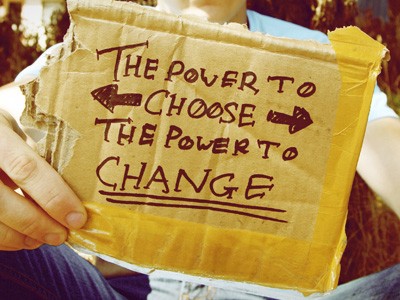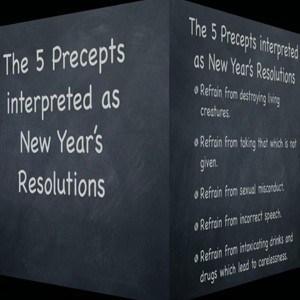Choice and changing
By L. B.

L. B. is in for 50 years and doesn't expect to see the outside again. What he wrote here is very insightful; we can understand the selfish mindset that he speaks of.
You asked me what is my understanding of why I have made the choices I have (I’m assuming you mean the ones that put me in prison). You also asked what factors conditioned these choices and what things I want to change.
First, the reason I have made the choices that I have is that I have been a selfish and self-absorbed individual. My thoughts and actions have always been wrapped up in doing whatever I think will please me at the time and satisfy my desires.
Seldom have I given thought to how my actions or words affect others. I shut off those thoughts and positive emotions that would hinder me from hurting others. I now understand this is the opposite of what the Buddha taught.
When I was growing up, I was always fearful of others and very self-conscious around them. This in turn didn’t help me build trusting relationships with others, and when I felt betrayed, such as a girlfriend breaking up with me or my mother leaving my stepfather or my real father never making attempts to get to know me, these reinforced my mistrust of others and pushed me further away from people. Eventually I started victimizing others, seeing them only as objects.
My thought processes at this time and up until this last year went hand in hand with my actions. I would dehumanize people in my mind and this facilitated the inappropriate behaviors and crimes. This has gone on for the last 41 of my 42 years on earth and probably before that.
That is my understanding and some of the conditioning factors that have led to my choices.
What do I want to change? I want to trade my non-compassion for compassion for others. I want to love people for who they are, and I want to help them be happy. I want to be the embodiment of the Buddhist saying, “All suffering comes from cherishing yourself, and all happiness comes from cherishing others.”
There is not a thing I have done in my life that has brought me happiness of the lasting kind, and very few things that I have done to bring some happiness to others, and frankly, Chodron, I’m sick of myself.
This last year I have spent in solitary confinement in an intensive management unit for an escape from prison a year ago. Since that time I have been attempting to open my heart to others and change my thinking and fantasies (sexual type) to those of compassion and love. Up until this last week, I have been very emotional, crying a lot, feeling great shame and guilt and remorse for my victims, friends, and family that I have harmed with my actions. I also had a lot of depression and some anger.
My meditation went from 60 to 90 minutes a day down to zilch over the last six months, and I started hating myself. Recently, however, I have come to understand that my thoughts and actions will only change when I practice the actions and think the thoughts that I want to change to. It’s interesting that I taught others how to change harmful actions by changing how they think through cognitive restructuring, yet I never internalized the information myself.
This last week I have been meditating on my ball of light, sending rays of peace to myself and my peace has returned. I feel hopeful and also have a sense of direction now. I experienced something new in my meditation. While feeling peace flow into me every time I inhaled, I felt peace flow out to my surroundings—like I was giving peace out to others. That is new to me. What do you make of that?
My direction now is to stay on the path, to learn to focus my thinking on positive emotions and appropriate actions, to reach out to others and learn to have compassion for them.
Incarcerated people
Many incarcerated people from all over the United States correspond with Venerable Thubten Chodron and monastics from Sravasti Abbey. They offer great insights into how they are applying the Dharma and striving to be of benefit to themselves and others in even the most difficult of situations.


